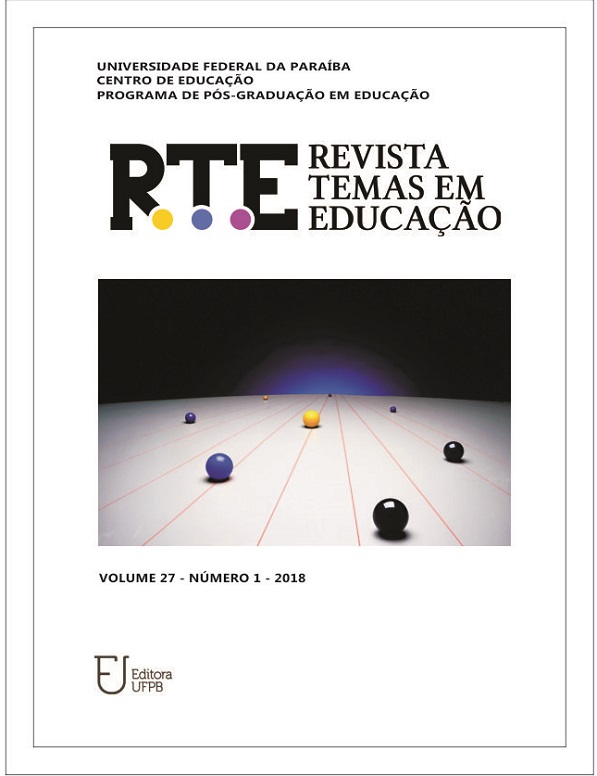LADY OF MATHEMATICS AND 3D TETRIS: A STUDY OF PRIMARY SCHOOL EQUATIONS THROUGH GAMES
LADY OF MATHEMATICS AND 3D TETRIS: A STUDY OF PRIMARY SCHOOL EQUATIONS THROUGH GAMES
DOI:
https://doi.org/10.22478/ufpb.2359-7003.2018v27n1.38691Keywords:
Games, Teaching-Learning, Primary School Equations, Inclusive practiceAbstract
In this article, we report an experience with the games “Lady of Mathematics” and “Tetris 3D”, used for the study of equations of primary schools with an unknown, implemented in the 8th year of Elementary School, in a public school in Serranópolis do Iguaçu -PR. The investigation was characterized as a case study and consists of a previous bibliographical review on the use of games in the teaching and learning of mathematics and the execution of a didactic proposal in the school and its description and final discussion. We conclude that the games contributed to the teacher’s understanding of the difficulties of the students to learn the equations of the primary school with an unknown; provided reflections and analyzes on the attitudes taken in the classroom, since there were students with visual impairment; and created situations to work in groups. We also found that the games instigated the teacher to rethink their practice in the inclusive aspect, and the students, to reflect on the subjects that are taught to them and their role in the construction of knowledge.
Downloads
Downloads
Published
How to Cite
Issue
Section
License
Authors who publish in this journal agree to the following terms:
. Authors retain the copyright and grant the journal the right to first publication, with the work simultaneously licensed under the Licença Creative Commons Attribution that allows the sharing of the work with acknowledgment of authorship and initial publication in this magazine. . Authors are authorized to assume additional contracts separately, for non-exclusive distribution of the version of the work published in this journal (eg, publishing in institutional repository or as a book chapter), with acknowledgment of authorship and initial publication in this journal.
. Authors are permitted and encouraged to publish and distribute their work online (eg in institutional repositories or on their personal page) at any point before or during the editorial process, as this can generate productive changes, as well as increase impact and citation of the published work (See O Efeito do Acesso Livre).



















